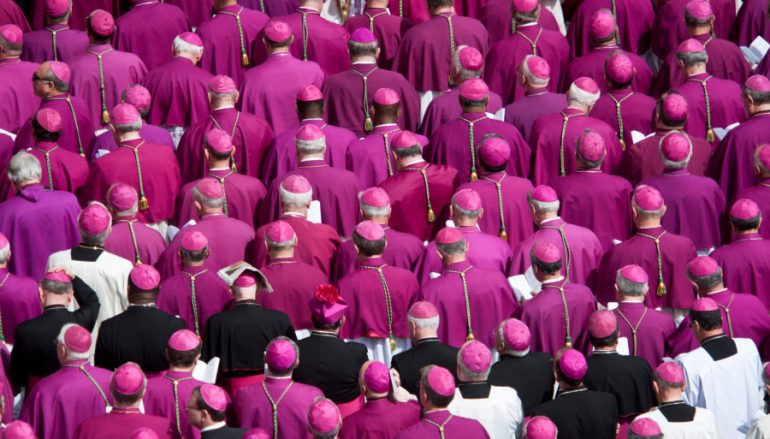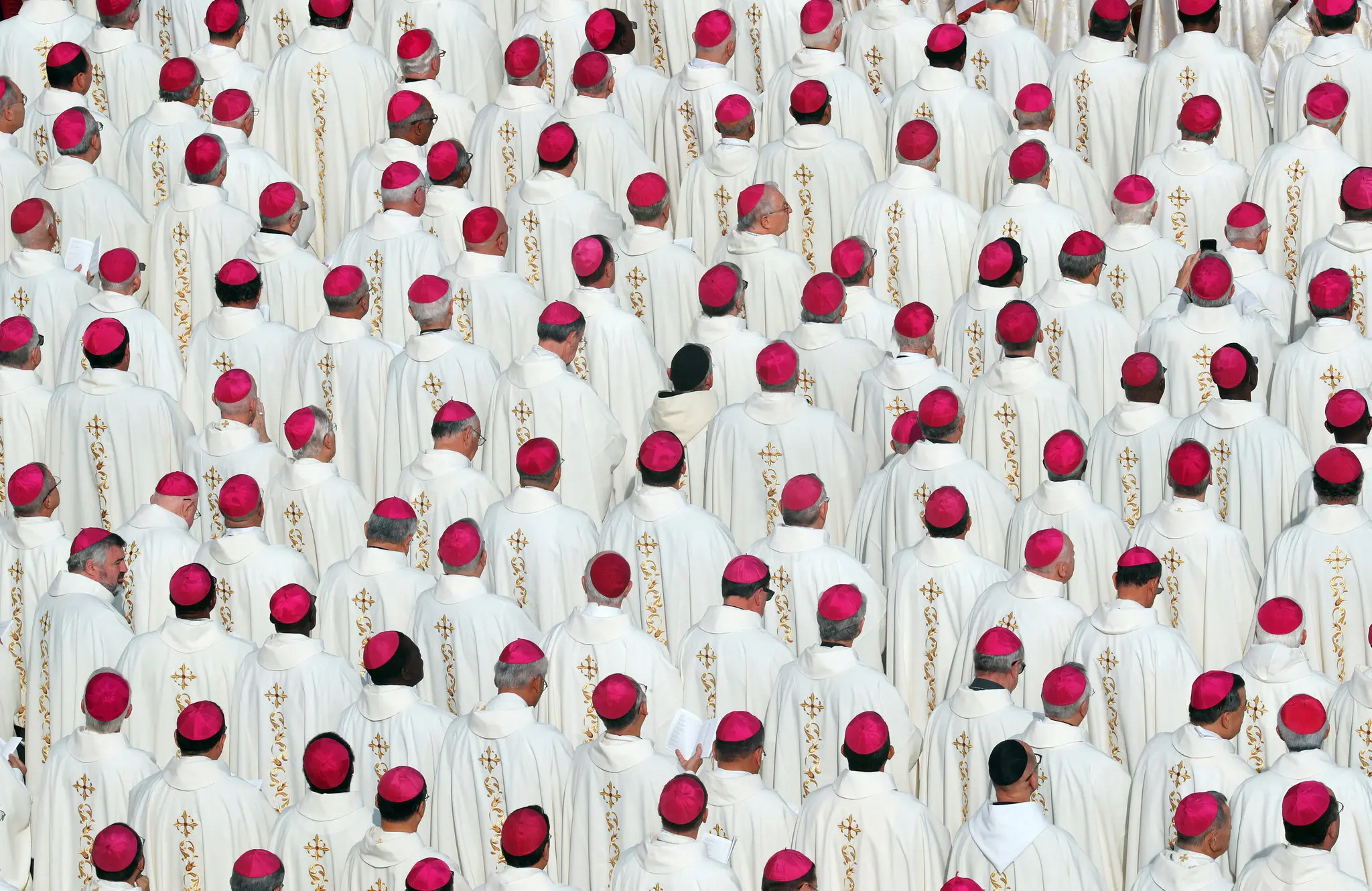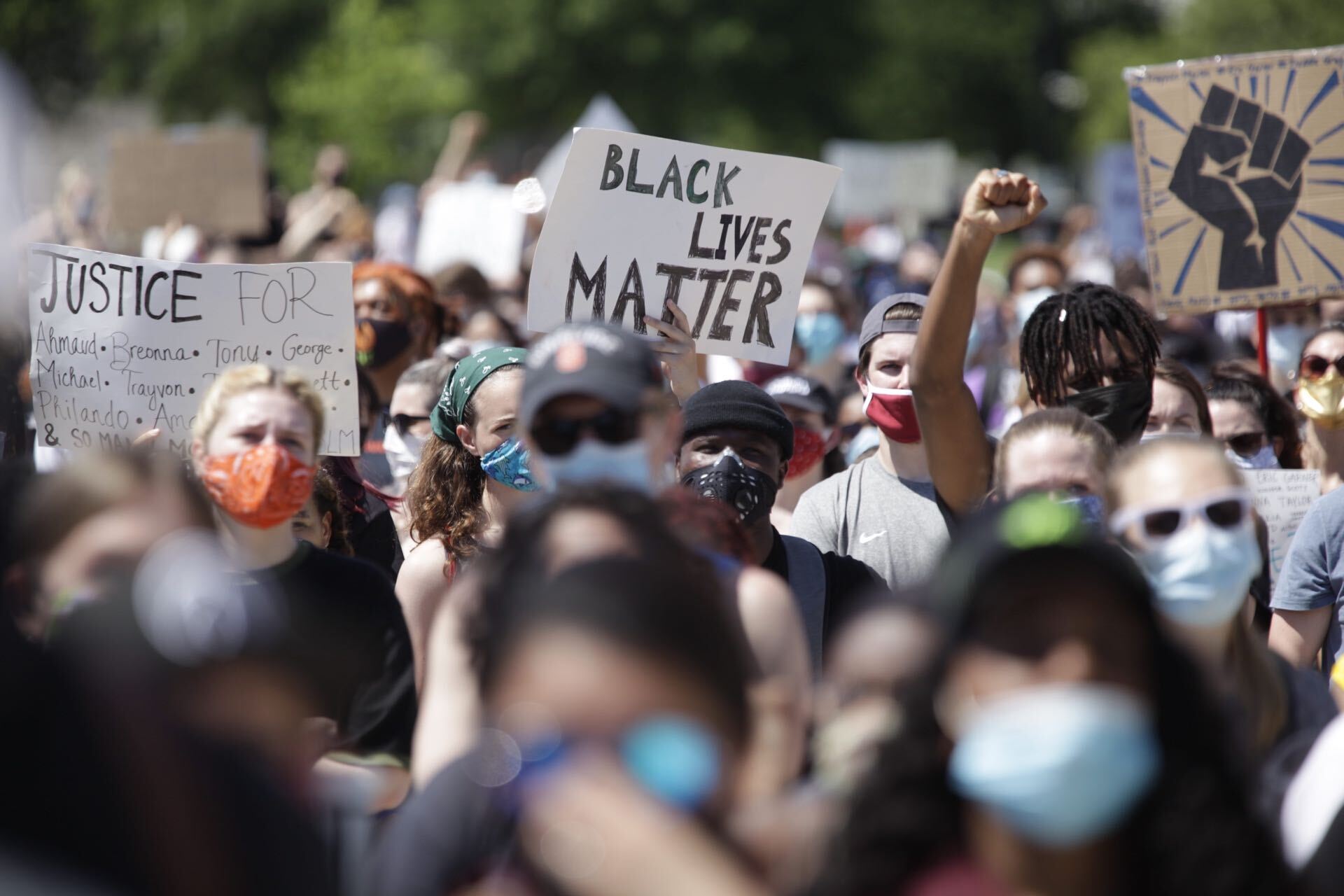
On Scandal and Schism

Growing up in a very conservative Catholic household, I heard many warnings about not causing “scandal” but I never thought much about the concept until a bishop accused me of doing just that. About two decades ago, the incident involved an award for a prominent alumna in public life. A photograph of the alumna and mention of the award appeared in our TRINITY magazine, which prompted a scolding letter from the local bishop, a cardinal, accusing me of creating scandal because the alumna, a politician, is pro-choice, contrary to Catholic teachings. Nothing about the award or the photograph suggested that Trinity or I were supporting abortion or flagrant disrespect for the Church. This women’s college was recognizing women’s leadership. No matter. In the words of the bishop, I was guilty of… Scandal!
The cardinal in question was McCarrick, no longer a cardinal nor priest. Defrocked due to sexual abuse allegations. The response of the hierarchy to the massive scandal of priests committing sexual crimes remains inadequate.
Can we talk about real “scandal” in the Church?
I was thinking of this incident recently when I read a speech that Archbishop Jose H. Gomez of Los Angeles gave on November 4, 2021 to the Congress on Catholics and Public Life in Spain. His Excellency Archbishop Gomez is also the current president of the U.S. Conference of Catholic Bishops which will meet next week to discuss, among other things, whether Catholic politicians who are pro choice can receive Holy Communion, something that some bishops call a scandal.
In his speech, Archbishop Gomez decried “new social justice movements” as “pseudo-religions” perpetrated by, among others, “an elite leadership class” in universities. Commentators have subsequently made it clear that he was referring to Black Lives Matter, among other movements. Archbishop Gomez said, “Whatever we call these movements — “social justice,” “wokeness,” “identity politics,” “intersectionality,” “successor ideology” — they claim to offer what religion provides.” He then ridicules “the ‘woke’story” of human suffering and oppression as somehow anti-Christian and wholly secular. He went on, “Today’s critical theories and ideologies are profoundly atheistic. They deny the soul, the spiritual, transcendent dimension of human nature; or they think that it is irrelevant to human happiness. They reduce what it means to be human to essentially physical qualities — the color of our skin, our sex, our notions of gender, our ethnic background, or our position in society…these movements resemble some of the heresies that we find in Church history.”
Can we talk about “scandal” in the Church?
Rather than going after faithful lay Catholics whose political views differ from their own, the bishops need to examine their own scandalous entwinement with political groups that mock Church teachings on social justice and profess outright contempt for Pope Francis.
It is a profound scandal for one of the leading Catholic bishops to call advocating for racial justice a heresy, to engage in gaslighting about the concept of social justice which is central to Catholic teachings and has been since the late 19th Century when Pope Leo XIII wrote Rerum Novarum. There is nothing “new” about social justice, nor is there anything “atheistic” about what has been a core set of beliefs for Catholics across generations. There is nothing — absolutely NOTHING! — that is anti-Christian about confronting racial hatred and white supremacy, about protesting police violence and the killings of Black people by law enforcement officers, about proclaiming the inherent rights and dignity of persons of color to be free from political oppression and social degradation. In fact, to do so is profoundly Christian.
Social justice starts with the bedrock teaching on the dignity and worth of human life — the whole basis for the Church’s teachings against abortion, the death penalty, and other major life-centered dogmas including (ahem, Archbishop Gomez) racism — and proceed through the tenets of solidarity, the option for the poor, the rights of workers, care for family and the community, the exercise of responsibility to participate in public life, and care for God’s creation. How “woke” is that? You can look it all up right there on the USCCB website! Social justice IS what we do as Catholics! But you wouldn’t know that from reading the Archbishop’s screed against it.
Perhaps most disturbing in his historically agnostic address, Archbishop Gomez cites the pandemic and the murder of George Floyd as the basis for the rise of “pseudo-religions” that are antithetical to Christian beliefs. “The new social movements and ideologies that we are talking about today, were being seeded and prepared for many years in our universities and cultural institutions. But with the tension and fear caused by the pandemic and social isolation, and with the killing of an unarmed black man by a white policeman and the protests that followed in our cities, these movements were fully unleashed in our society.”
Shame on the archbishop for using George Floyd’s murder as a pretext for political grandstanding in the guise of Catholic teaching! Shame on him for dismissing concerns about racial hatred, white supremacy, and the actual and profound harm done to human life through the ongoing consequences of racial brutality and political oppression! Shame on him for speaking contemptuously of the work of universities devoted to promoting the ideals of social justice — universities like Trinity that work in solidarity with those who are marginalized, who have suffered immense poverty and discrimination and yet are able to find hope and pathways to greater economic security and lifelong fulfillment with a great education, one that was first conceived and shaped by the selfless labor of great Catholic religious women like our Sisters of Notre Dame de Namur here at Trinity, and religious orders like the Jesuits and others.
In response to the murder of George Floyd and the righteous protests that followed, here at Trinity we created Trinity DARE: Driving Actions for Racial Equity to promote racial justice for our students, the majority of whom are African American, with substantial representation of Hispanic, Asian and students from immigrant backgrounds. We certainly did not do this as some kind of (in the words of Archbishop Gomez) Marxist or pseudo-religious or atheistic impulse. Rather, as with all that we do at Trinity, we pursue racial justice as an expression of our mission in Catholic social justice.
Not a word of acknowledgement or gratitude in the speech of Archbishop Gomez for all those who do the hard work of the Church every day, lay women and men whose devotion to mission is breathtaking, the workers in what Pope Francis once called the “field hospital” of our faith.
The archbishop’s statement seems wholly divorced from the reality of Catholic teachings on social justice as well as the plain fact that the most important social justice movement of our lifetime — the civil rights movement, the quest to atone for the ongoing consequences of slavery and search for racial equity — arose from, was led by, and is fueled by the passion of people of faith and Christian beliefs, and generations of ministers including, most famously, the Rev. Martin Luther King, Jr. Reading the bishop’s speech, I felt that he had never actually talked with or had any experience with members of the Black community who are profoundly Christian and unabashedly religious in their expression — more so than most white Catholics of my acquaintance.
Commenting on the bishop’s speech in National Catholic Reporter, Fr. Bryan Massingale noted, “…he blanketly characterizes social justice movements such as Black Lives Matter as pseudo-religions based on profoundly atheistic ideologies that are hostile to Catholic belief…On the contrary, most Black Catholics I know advocate Black Lives Matter precisely because of our belief in the universal human dignity of all people as images of God,” Massingale added. “We declare that Black Lives Matter precisely because of our allegiance to what the archbishop calls the Christian story.”
Can we talk about the real “scandal” in the Church?

Next week the U.S. Conference of Catholic bishops, of which Archbishop Gomez is president, will be meeting in Baltimore to discuss, among other things, a document that arose from the desire of some bishops to prohibit pro-choice politicians from receiving Holy Communion. Joe Biden is only the second Catholic president in all of American history, and yet a significant group of bishops are hell-bent on making him a pariah in our Church. Why? Because he is pro-choice, which seems to be the single greatest “scandal” in the lexicon of some bishops. Dimissive of social justice, unconcerned about the deeply corrosive effects of racial hatred, ignoring their responsibilities as pastoral leaders, some bishops would seem to be happier if the Church were much smaller. They may get their wish. If bishops like Gomez keep it up, the defections among the faithful will increase, not in any dramatic walkout, but in the slow and steady erosion of confidence in the leadership of the Catholic Church in America.
The real scandal that is brewing is a potential fracturing of the Church in the United States — some say it has already occurred — leading to a formal recognition of schism. If the bishops care anything about the health of the Catholic Church in America, they should reconsider their strategies. The vast body of the faithful are looking for pastoral leadership, affirmation of the good work that we are doing, and even if our views depart at times from what the bishops may wish (sometimes for good reason, if they would only listen), at least some care and concern for how disagreement occurs among people who are all walking together on the same journey across very treacherous terrain. Bishops should be looking for ways to hold the faithful together, not using wedges to drive us farther apart.
Pope Francis has made it eminently clear that he wants the American bishops to stand down from their confrontation with President Biden and other Catholic politicians whose secular political positions are at odds with Catholic teachings on abortion. Teach and preach, yes, that’s what bishops should do; but public condemnation of individuals? No. Public confrontation at the communion rail over political issues is desecration of the sacrament and at odds with the pastoral responsibilities of the clergy.
Let those pastoral responsibilities start with a commitment to backing away from culture wars and dismissive rhetoric about the importance of social justice movements. Let the bishops stand up to racial hatred and injustice as a matter of our faith teaching about the dignity and worth of all human life. Let the bishops commit themselves to spending more time side-by-side with those who are laboring mightily in the field hospital, and less time in places like the Napa Institute cavorting with those who are responsible for driving people to the margins.
